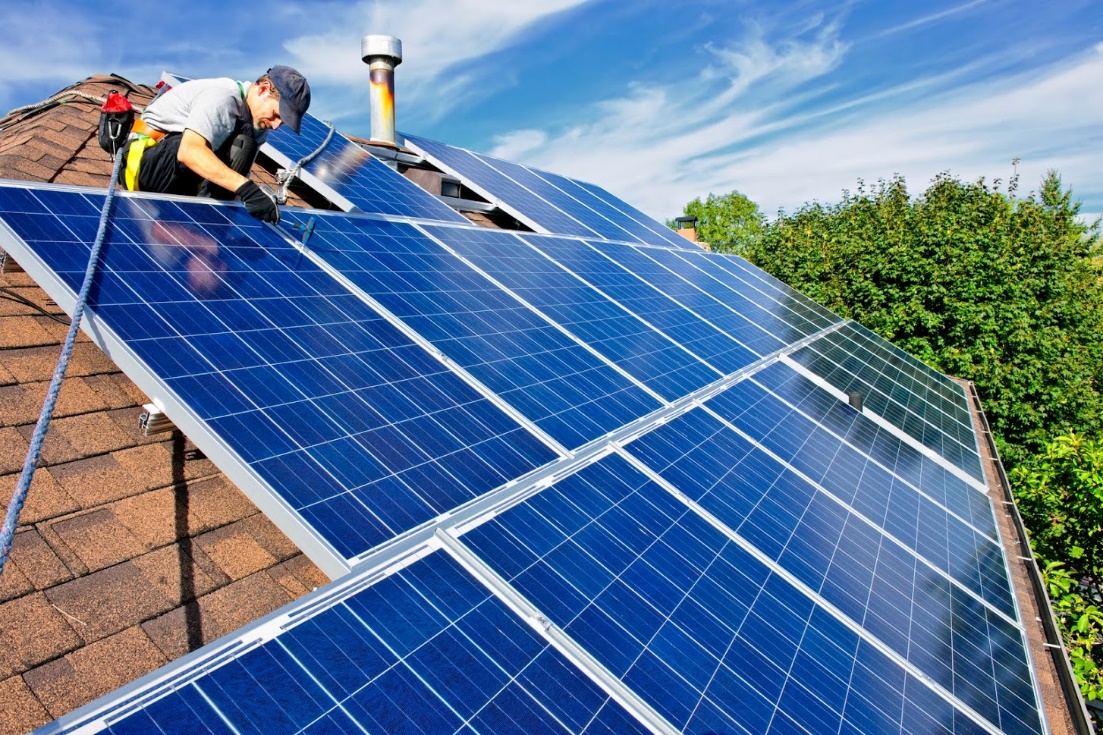In principle, home solar is a simple system that converts energy from the sun's rays into electricity that you can use. In reality, these are complex systems, and you have many things to consider when purchasing one. Here are some of the people you should talk with if you purchase a home solar system.

Solar Energy Company Representative
Of course, you need to discuss your project with a representative from a solar energy company. This is the person you should direct any questions you have about the system itself to. They can walk you through the design of your home's specific project. Most importantly, a solar energy company's representative can help you determine what size and type of home solar system you need.
When figuring out size, you have several factors to keep in mind:
- The panels should produce enough electricity to offset your monthly usage.
- The panels' efficiency will decrease slightly over time.
- The panels' capability will be affected by your local climate and how much sun your home gets.
With all of this information, a representative can walk you through the steps necessary to figure out how many solar panels you need.
In most cases, they'll recommend a system that can produce slightly more electricity than you need in your peak month. This ensures they're capable of providing the electricity you need in every month, and it provides a buffer against any future decreases in efficiency. The decreases are small, usually 0.5 to 1 percent per year, but they should be planned for.
As for the type of system, you have three options to choose from:
- Off-grid systems: These are uncommon, and require extensive battery backups but let you build a home solar system away from power lines.
- On-grid systems: These popular systems have to connect to the power grid and will go out if the power grid experiences a blackout, but these systems don't need batteries and make it possible to sell back excess electricity.
- On-grid systems with battery backup: These require a few batteries and must connect to the grid, but they make it possible to sell back electricity and ensure your lights stay on even when a blackout happens.
A representative will know which of the three options is most appropriate given your situation and needs.
Certified Public Accountant
The federal government offers a solar tax credit to homeowners who install solar power systems prior to 2022. How much you can claim depends on the year in which the system is installed:
- Through 2019, 30 percent of the cost is claimable as a tax credit.
- In 2020, 26 percent of the cost is claimable as a credit.
- In 2021, 22 percent of the cost is claimable as a credit.
Importantly, these are credits rather than deductions. Whereas deductions simply reduce your taxable income, credits directly reduce how much you owe. For example, a 30-percent credit on a $10,000 installation would equate to getting $3,000 off however much you owe.
In addition to the federal government's credit, many states and municipalities also have their own incentive programs. Some provide tax credits or rebates after you installed the home solar system, and others won't count the value of a system toward the appraised value of a home. This last benefit keeps homeowners from paying property taxes on the system's added value.
Because the incentives available vary by jurisdiction and can be complex to calculate, you should meet with a certified public accountant who's familiar with tax laws in your area. A CPA can check which programs your project qualifies for and then show you how the available incentives will lower your tax liability.
Homeowners Insurance Agent
Before the installation is complete, review your homeowners insurance policy with a knowledgeable agent. You'll want to make sure that the policy covers potential damage to your home's new solar energy system. You have two items to keep in mind when checking your policy's coverage.
First, ensure that coverage extends to all components of the system. The system might already have coverage under the policy's protections, or you may have to adjust coverages slightly to cover every component. You should wait to talk with your agent until after your system is designed so that you know exactly what components will be in it.
Second, check what perils are covered. Perils are the risks that an insurance policy protects against, and they're defined in a policy's terms and conditions. You might want protection against fire, vandalism, wind, tree branches, hail, and other perils. Your agent can help you cover all the perils you're concerned about.
If you're interested in a home solar system, contact one of the professionals at Solar Source to set up a consultation and get the project underway. In order to take full advantage of the federal tax credit, you'll need to complete the project this year.

